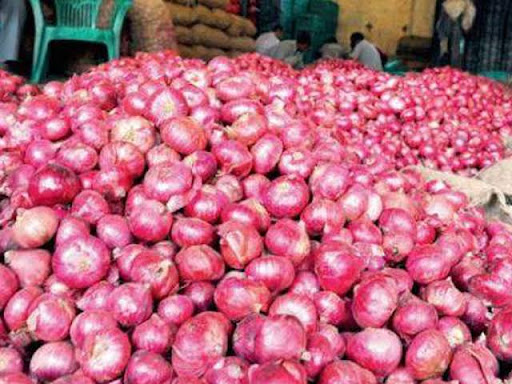Sumana Das, Pune
A day after the Center decided to charge a 40% levy on onions exported until December 31, 2023 in order to curb price increases and boost supplies on the domestic market, opposition leaders, farmers, and traders criticized the move.
Farmers and traders protested on Sunday at India’s largest onion trading mandi in Lasalgaon, Nashik district, and farmers connected to Swabhimani Shetkari Sanghatana halted the auctioning of the product at Rahuri Agriculture Market in Ahmednagar.
Nashik-based onion sellers have chosen not to perform auctions on Monday at Lasalgaon and other marketplaces in the area. Following a discussion between traders and onion growers, a resolution was made in this regard.
The Centre’s decision to apply an additional duty, in the opinion of the farmers and dealers, will result in a decrease in the price of onions in the retail market. At the retail level, onions are currently sold for between Rs 30-40 per kilogram, which has decreased by about 10.
According to Nashik-based onion exporter Vikas Singh, there was no need to impose export taxes because prices had dropped over the previous few days, with wholesale market prices decreasing between Rs.19 and Rs22 per kg.
According to Dada Bhuse, “the minister for the Nashik district guardianship, the state government will lobby the Center to abolish the export tax on onions”.
“Onion farmers are suddenly making some money after suffering losses for a very long period. The most recent judgment will harm farmers”, according to Bhuse.
Sharad Pawar, president of the Nationalist Congress Party (NCP), criticized the Centre’s decision at a speech in Pune, claiming that it will affect the economics of onion growers.
In the Eknath Shinde-led administration, NCP leader and minister Chhagan Bhujbal stated, “The national government had previously determined it will preserve 3 lakh tonnes of onions in the 2023–24 season as buffer stock.”
